US calls for direct talks as North Korea tests biggest missile since 2017
4 min readNorth Korea confirmed on Monday it had launched a Hwasong-12 ballistic missile, the same weapon it once threatened to target the US territory of Guam with "enveloping fire," sparking fears the nuclear-armed state could resume long-range testing.
The launch of the intermediate-range ballistic missile (IRBM) was first reported by South Korean and Japanese authorities on Sunday. It was the seventh test conducted by North Korea this month and the first time a nuclear-capable missile of that size has been launched since 2017.
The United States is concerned North Korea's escalating missile tests could be precursors to resumed tests of nuclear weapons and intercontinental ballistic missiles (ICBMs) and vowed an unspecified response "designed to show our commitment to our allies," a senior U.S. official told reporters in Washington. read more
"It's not just what they did yesterday, it's the fact that this is coming on the heels of quite a significant number of tests in this month," the official said, while urging Pyongyang to join direct talks with no preconditions.
North Korea has said it is open to diplomacy, but that Washington's overtures are undermined by its support for sanctions and joint military drills and arms buildups in South Korea and the region.
Amid a flurry of diplomacy in 2018, including summits with then-U.S. President Donald Trump, North Korean leader Kim Jong Un declared his nuclear force complete and said he would suspend nuclear testing and launches of the country's longest-range missiles.
Kim said he was no longer bound by that moratorium after talks stalled in 2019, and North Korea suggested this month it could restart those testing activities because the United States had shown no sign of dropping its "hostile policies."
It is unclear if IRBMs such as the Hwasong-12 were included in Kim's moratorium, but none had been tested since 2017.
South Korean President Moon Jae-in said the recent flurry of North Korean missile tests was reminiscent of heightened tensions in 2017, when North Korea conducted multiple nuclear tests, launched its largest missiles, and drew threats of "fire and fury" from the United States.
South Korean Defence Minister Suh Wook visited his country's Army Missile Command on Monday to check its readiness in the face of the North Korean launches, the ministry said in a statement.
"North Korea’s series of missile test-fires, including intermediate-range ballistic missiles, pose a direct and serious threat to us and a grave challenge to international peace and stability," Suh said after being briefed. "We will maintain a full military readiness posture that can respond immediately to any situation."
Japan's Defence Minister Nobuo Kishi told reporters North Korea was escalating its provocation of the international community and said its "remarkable improvement" in missile technology "cannot be tolerated".
Boosting missile capabilities
Sunday's test "confirmed the accuracy, safety, and operational effectiveness of the produced Hwasong-12 type weapon system," North Korean state news agency KCNA reported.
State media coverage of the launch made no mention of the United States, and Kim was not reported to have attended. North Korean officials said this month the tests are for self defence and not targeted at any specific country.
Kim vowed ahead of the New Year to bolster North Korea's military capabilities in the face of international uncertainties caused by "hostile policies" by the United States and its allies.
North Korea has previously said the Hwasong-12 can carry a "large-size heavy nuclear warhead," and analysts estimate it has a range of 4,500 km (2,800 miles).
In August 2017, just hours after Trump told the North that any threat to the United States would be met with “fire and fury”, the commander of the North’s Strategic Forces said it was “seriously considering a plan of enveloping fire” involving a simultaneous launch of four Hwasong-12 missiles toward Guam.
That year North Korea flight-tested the Hwasong-12 at least six times, including flying it over the northern Japanese island of Hokkaido twice.
KCNA said Sunday's missile launch was conducted in such a way as to ensure the safety of neighbouring countries, and that the test warhead was fitted with a camera that took photos while it was in space.
For the latest news, follow us on Twitter @Aaj_Urdu. We are also on Facebook, Instagram and YouTube.














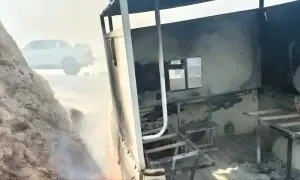
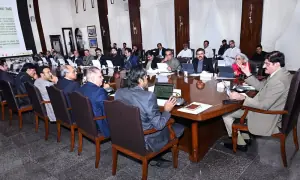



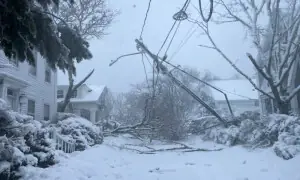

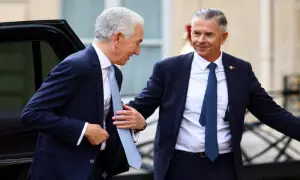
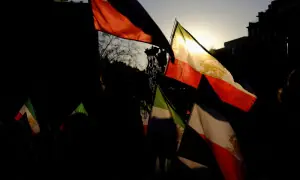
Comments are closed on this story.